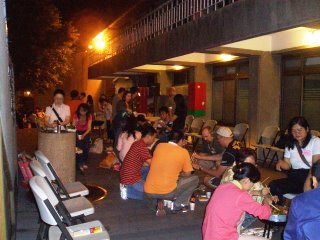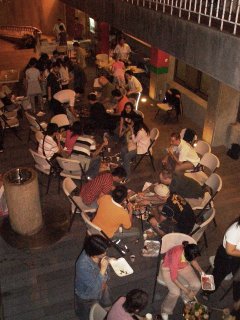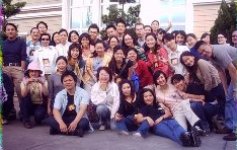When they had prayed, the place where they were assembled together was shaken. —Acts 4:31
Peter and John were in danger. The religious leaders in Jerusalem opposing the gospel had warned them to cease their missionary efforts (Acts 4:18). When the apostles reported this to the other believers, they immediately held a prayer meeting.
What happened next is thrilling. The believers first praised God. Then they asked for boldness that they might continue the work. The results were dramatic. The house shook, and the believers were filled with the Holy Spirit. They boldly witnessed, enjoyed spiritual unity, and gave unselfishly to those in need (vv.31-37).
I've never felt a building shake at a prayer meeting, but I have seen God's power at work. When I've tried to help repair a broken marriage or a divided church, I've asked those involved to pray. Sometimes they refused. Other times, though, they mumbled carefully worded prayers. Those meetings failed.
But occasionally someone would pray in earnest. Almost immediately the atmosphere would change. Confession and forgiveness soon replaced charges and countercharges.
When we pray sincerely, praising God and seeking His glory, great things happen. Prayer must always come from the heart. —Herbert Vander Lugt
Dissension's fuse is easy to ignite—It fuels our anger, yet it dims the light;Help us, we pray, to humbly seek Your Name,And in pride's place restore the Spirit's flame. —TLG
Sincere intercession is the key to God's intervention.

金句: 「禱告完了,聚會的地方震動。」(使徒行傳4章31節)
彼得與約翰遇到了危險,因為耶路撒冷抵擋福音的宗教領袖警告他們,不可再奉耶穌的名講論(使徒行傳4章18節)。於是使徒把這消息告知其他信徒,他們就立刻舉行禱告會。
接下來發生了令人震驚的事。信徒們先讚美上帝,然後求上帝賜給他們膽量繼續傳講耶穌。他們的禱告帶來了驚人的效果──房屋震動,信徒都被聖靈充滿,而且放膽去作見證,得享屬靈的合一,並且無私地幫助那些有需要的人(31-37節)。
我參加禱告會,從來沒遇到過房屋震動,但我卻看到上帝大能的作為。我在幫助婚姻瀕臨破碎的夫妻,或是分裂的教會時,總會邀請當事人一起禱告。有時他們不肯與我一同禱告,有時他們會小心翼翼地選詞用字,含糊其辭地禱告,這樣的話,我們的會面往往就會以失敗收場。
但有時我也會遇到熱切禱告的人,這樣禱告時,現場的氣氛幾乎立刻就會改變,隨之而來的是認錯與饒恕,不再互相指責和反駁。
只要誠心禱告、讚美上帝,並尋求他的榮耀,上帝就行奇事。禱告之道無他,唯有從心發出。HVL
衝突火線易點燃,帶來怒氣和黑暗;謙卑祈禱求主名,聖靈火焰代傲慢。TLG
真誠代禱是讓上帝動工的關鍵。













